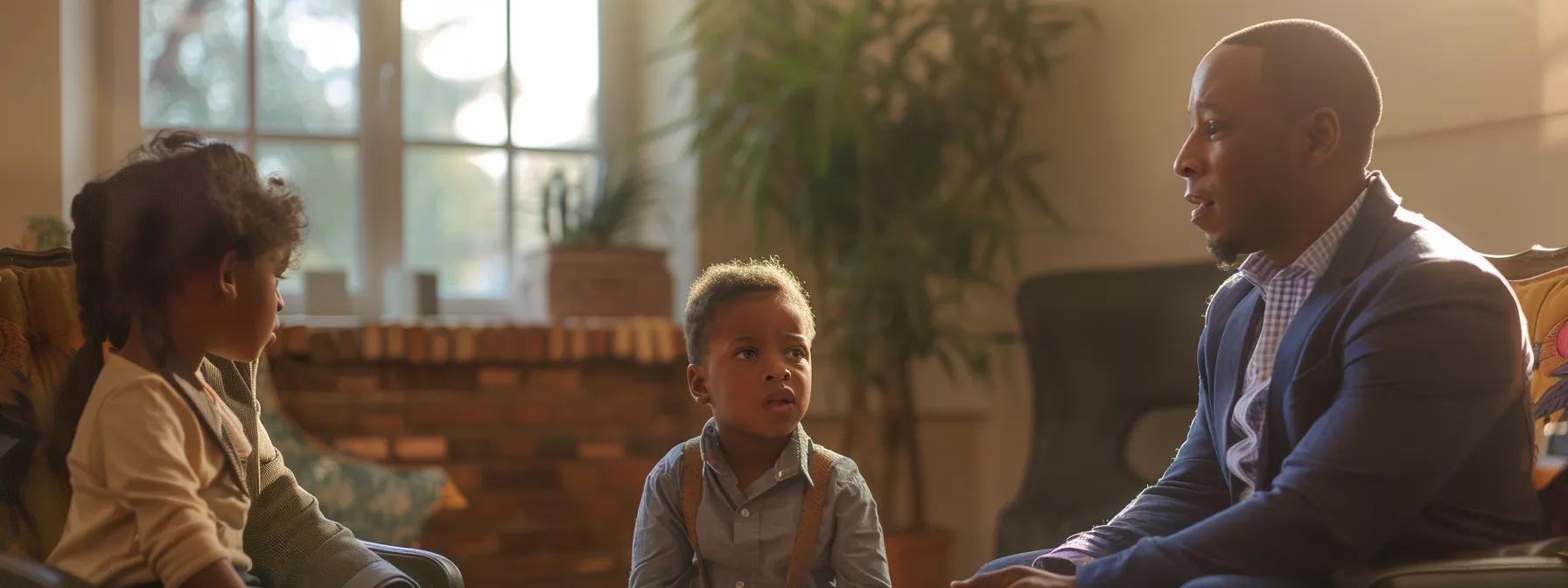What Does a Judge Look for in a Custody Hearing?

Key Takeaways
- Judges evaluate custody cases by focusing on the best interests of the child, prioritizing stability, safety, and the child’s overall well-being.
- Evidence related to parental capability, history of care, and the ability to facilitate co-parenting is crucial.
- Expert testimony, documented parental involvement, and a clear presentation from a knowledgeable Virginia Beach custody lawyer can greatly influence outcomes.
Understanding the Best Interests of the Child Standard in Virginia

Virginia courts employ the “best interests of the child” standard to determine custody arrangements by evaluating each parent’s circumstances to protect the child’s well-being.
Defining the “Best Interests” Principle in Virginia Custody Law
The “best interests” principle requires decisions that serve the child’s emotional, physical, and developmental needs. Virginia judges rely on established guidelines and specific case details to determine the arrangement that best benefits the child. For more detailed legal insights, you may visit coastalvirginialaw.com.
How Virginia Judges Prioritize the Child’s Needs
Judges consider factors such as stability, continuity in the child’s education, and community ties. They assess which parent is more capable of nurturing the child’s growth and providing consistent emotional support and care.
Key Differences Between Parent’s Desires and Child’s Best Interests
Often, a parent’s personal desires differ from what benefits the child. Virginia courts prioritize the child’s welfare over individual ambitions, ensuring that custody reflects the objective best interests of the child.
The Role of a Virginia Beach Custody Lawyer in Presenting Your Case
A knowledgeable custody lawyer in Virginia Beach guides parents through the legal complexities. They help document evidence of parental strengths, prepare persuasive testimonies, and present key facts that underscore arrangements most beneficial for the child.
Evaluating Each Parent’s Ability to Care for the Child
Evaluating a parent’s capability involves both tangible resources and emotional support.
Assessing Physical and Mental Health of Each Parent
Judges examine whether each parent’s physical and emotional health supports a nurturing environment. Consistent good health is essential for meeting the ongoing demands of childrearing.
Examining the Willingness to Support the Child’s Relationship With the Other Parent
A parent’s readiness to foster a healthy relationship with the other parent is crucial. Evidence of encouraging co-parenting and impartial support can significantly influence a judge’s decision.
Reviewing Each Parent’s Historical Role in Child Rearing
Courts review each parent’s involvement in daily routines, school events, and extracurricular activities. A consistent history of care is a strong indicator of dedication and reliability.
Considering Each Parent’s Capacity to Provide a Stable Home Environment
Stability in housing, financial security, and community integration all contribute to a secure environment for the child. A stable home provides the consistency essential for the child’s psychological and emotional development.
How a Custody Lawyer in Virginia Beach Can Highlight Your Strengths
An experienced custody attorney can effectively highlight positive factors—such as documented active parenting and a secure home—by compiling evidence to demonstrate stability and reliability.
The Child’s Developmental Needs and Preferences

Understanding a child’s evolving needs is critical in custody decisions. Judges weigh both the child’s personal preferences and developmental requirements.
Considering the Child’s Age and Changing Needs
As children mature, their need for supervision or independence changes. Younger children may require constant care, while older children might have specific schooling or social opportunities that need to be considered.
Weighing the Child’s Reasonable Preference if of Sufficient Age and Maturity
When a child is mature enough, their expressed preferences are taken into account as part of the overall evaluation, ensuring the custody decision aligns with what is realistically best for them.
Assessing the Child’s Relationships With Siblings and Extended Family
Strong relationships with siblings, grandparents, and extended family members are valued in custody evaluations, as they provide additional emotional comfort and stability.
Special Needs of the Child and Each Parent’s Ability to Meet Them
For children with unique needs—physical, educational, or emotional—the parent’s ability to provide the necessary specialized care is critical. Courts examine the availability of resources such as medical or educational support.
Examining the History of Parent-Child Interactions and Relationships
The quality of past interactions between parent and child is a key predictor of future dynamics.
Evaluating the Existing Bond Between Each Parent and Child
A strong, positive bond is demonstrated by consistent nurturing behavior and emotional intimacy. Judges look for evidence of sustained care that reflects a healthy relationship.
Investigating Any History of Family Abuse or Neglect
Any history of abuse or neglect is heavily weighted in custody decisions. Documented instances of such behavior typically disqualify a parent from receiving favorable custody.
Assessing Each Parent’s Ability to Foster a Positive Relationship
A parent must actively nurture a supportive relationship with the child. Involvement in academic, social, and extracurricular activities is viewed favorably during hearings.
Documenting Parental Involvement in School and Extracurriculars
Keeping records of participation in school events and extracurricular commitments helps demonstrate a parent’s proactive role and tangible involvement in the child’s daily life.
The Importance of Co-Parenting and Communication

Effective co-parenting and clear, transparent communication benefit the child’s emotional stability after separation.
Assessing Parents’ Ability to Cooperate and Resolve Disputes
Judges consider whether parents can work together amicably on child-related issues. A willingness to resolve disputes is a strong indicator favoring joint custody arrangements.
Evaluating Each Parent’s Willingness to Facilitate Contact With the Other Parent
A parent’s support for regular, meaningful contact with the other parent is vital. Courts appreciate when a parent actively enables the child to maintain a healthy relationship with both parties.
The Court’s Preference for Parents Who Encourage a Healthy Co-Parenting Dynamic
Virginia courts favor custody splits when both parents promote a positive, cooperative environment that minimizes the child’s emotional stress.
How a Virginia Beach Custody Attorney Can Help Develop a Co-Parenting Plan
A skilled custody attorney assists in creating a clear and mutually acceptable co-parenting plan, outlining communication protocols and schedules to reduce conflicts and ease transitions.
Presenting Evidence and Testimony in a Virginia Beach Custody Hearing
Presenting clear evidence and expert testimony is pivotal during a custody hearing.
Types of Evidence Virginia Judges Consider Persuasive
Judges value documented evidence such as school records, medical reports, and eyewitness testimonies, which reinforce claims about a parent’s ability to care for the child.
The Role of Witness Testimony From Relatives, Teachers, and Others
Testimonies from relatives, teachers, and childcare providers offer firsthand insights into the parent-child relationship. These accounts can strengthen the overall case by providing practical examples of effective parenting.
Utilizing Expert Witnesses Such as Child Psychologists
Expert witnesses like child psychologists can offer critical insights into the child’s needs and the long-term effects of custody arrangements, influencing judicial decisions with their professional opinions.
Preparing for Your Custody Hearing With a Virginia Beach Custody Lawyer
A competent custody lawyer will prepare by gathering critical documents, organizing evidence, and coaching the parent for cross-examination, ensuring every aspect of the case is clearly presented.
Understanding How a Guardian Ad Litem’s Report Influences the Judge
A Guardian ad Litem (GAL) is appointed to represent the child’s best interests and submits a report that provides an objective overview of the child’s needs and each parent’s suitability.
Frequently Asked Questions
Q: What does the best interests of the child standard mean in custody hearings? A: It means evaluating all factors affecting the child’s well-being, including stability, safety, and nurturing aspects, to decide the most beneficial custody arrangement.
Q: How do judges assess a parent’s ability to care for their child? A: Judges review physical and mental health, historical involvement, home stability, and willingness to support co-parenting, primarily using documented evidence and witness testimony.
Q: Can a child’s preferences influence custody decisions in Virginia? A: Yes, if the child is mature enough, their preferences are considered alongside other evidence of parental capability.
Q: What role do co-parenting skills play in custody determinations? A: Effective co-parenting and facilitating contact with the other parent are crucial. Courts favor arrangements that promote healthy, cooperative relationships.
Q: How important is expert testimony in a custody hearing? A: It is very important. Testimony from child psychologists or guardians ad litem provides professional insights into the child’s needs and the effectiveness of parental care.
Final Thoughts
In Virginia custody cases, the judge’s primary concern is the overall well-being of the child. Evaluations focus on the stability, health, and past involvement of each parent, as well as their ability to cooperate and create a nurturing environment. Presenting comprehensive evidence and utilizing expert testimony are key to enhancing a custody case. Parents are encouraged to work with an experienced Virginia Beach custody attorney to clearly demonstrate that their custody proposal is aligned with the child’s best interests.



